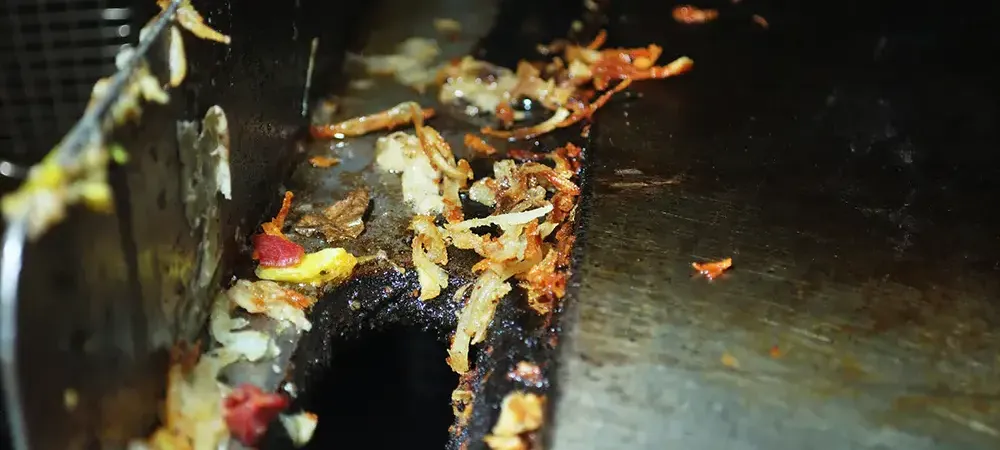How Does a Grease Trap Work?

A grease trap, also known as a grease interceptor or grease recovery device, is a plumbing device designed to intercept most greases and solids before they enter a wastewater disposal system. Grease traps play a crucial role in maintaining cleanliness and efficiency in commercial kitchens. They are commonly found in commercial kitchens, such as restaurants, cafeterias, and food processing facilities, where large quantities of fats, oils, and grease (FOG) are generated during food preparation and cooking. Let’s dive into how they work, why they’re needed, and how they contribute to a healthier environment.
How Does a Grease Trap Work?
A grease trap works in a few different steps:
- Interception: When wastewater containing FOG enters the grease trap, the trap’s design slows down the flow of water, allowing the FOG to cool and solidify. This process enables the grease to rise to the surface, while solids sink to the bottom.
- Separation: The grease trap consists of baffles or plates that create a series of chambers. These chambers help in separating the FOG, solids, and wastewater. The FOG accumulates on the surface, forming a layer, while the solids settle at the bottom.
- Retention: The separated FOG forms a layer on top of the water, preventing it from flowing out of the trap. Meanwhile, the relatively cleaner water flows through the trap and exits into the sewer system.
- Cleaning: Over time, the grease trap fills up with FOG and solids. Regular maintenance is necessary to prevent blockages and ensure optimal performance. This involves removing the accumulated grease and solids from the trap and properly disposing of them.
Why Are Grease Traps Important?
Now that you know what grease traps are and how they work, here is why grease traps are important and how they have such a positive impact on the environment.
- Preventing Drain Blockages: Without a grease trap, FOG can accumulate in sewer pipes, leading to blockages and backups. This can result in costly repairs and disruptions to operations.
- Protecting the Environment: FOG discharged into the sewer system can cause environmental damage by clogging waterways and harming aquatic life. Grease traps help mitigate these risks by capturing FOG before it reaches the sewer.
- Compliance with Regulations: Many jurisdictions have regulations in place that require commercial kitchens to install and maintain grease traps. Compliance with these regulations is essential to avoid fines and penalties.
- Maintaining Hygiene: Grease traps prevent FOG and food particles from building up in plumbing systems, reducing foul odors and the risk of bacterial growth. This contributes to a cleaner and healthier kitchen environment.
Contact the Professionals for Grease Trap Cleaning
In summary, grease traps are indispensable fixtures in commercial kitchens, silently performing the vital task of keeping plumbing systems clear and compliant. By intercepting fats, oils, and grease before they wreak havoc on drains and sewers, grease traps contribute to a cleaner environment and smoother kitchen operations.
And when it comes to maintaining and servicing your grease traps, Northern Gulf Services stands ready to assist. With our professional expertise and commitment to excellence, we ensure that your grease traps remain in optimal condition, preventing costly disruptions and ensuring compliance with regulations.
Sources:
- Environmental Protection Agency (EPA) - "Controlling Fats, Oils, and Grease Discharges from Food Service Establishments"
- Environmental Protection Agency (EPA) - “Fats, Oils and Grease (FOG) Management & Control Program”
- SaniWater - “Commercial kitchen fats, oil, and grease best management practice”
